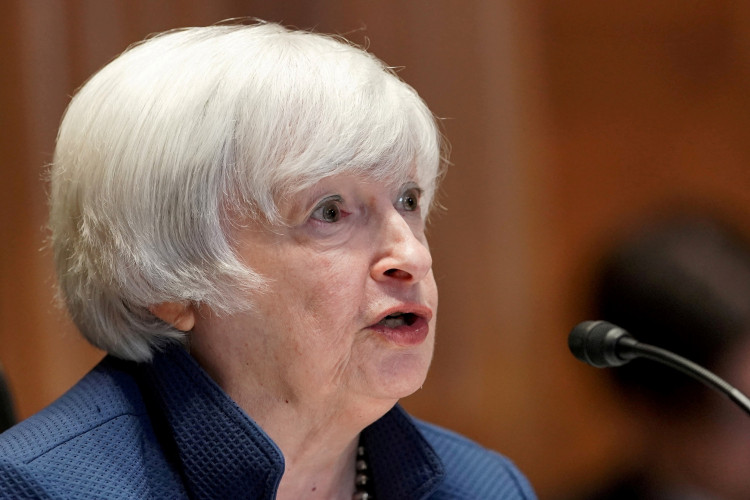Treasury Secretary Janet Yellen is expected to deliver a strong rebuke against former President Donald Trump's proposed tariff plans in a speech at the Council on Foreign Relations on Thursday. While not mentioning Trump by name, Yellen will describe sweeping tariffs as "deeply misguided," warning that such measures would drive up inflation, hurt American businesses, and ultimately pass costs onto consumers.
The speech comes just weeks ahead of the 2024 presidential election, in which Trump has made tariffs a central part of his economic platform. Trump's proposal includes imposing tariffs as high as 20% on all foreign imports, with even steeper rates - up to 60% - on goods from China. He has also suggested introducing a 100% tariff on countries that shift away from using the U.S. dollar.
Yellen's remarks will serve as a counter to Trump's strategy. In prepared excerpts released by the Treasury Department, she states, "Calls for walling America off with high tariffs on friends and competitors alike or by treating even our closest allies as transactional partners are deeply misguided. Sweeping, untargeted tariffs would raise prices for American families and make our businesses less competitive."
Her comments also challenge Trump's broader "go it alone" approach to international trade and security, emphasizing the importance of collaboration with global partners. "We cannot even hope to advance our economic and security interests - such as opposing Russia's illegal invasion of Ukraine - if we go it alone," Yellen is expected to say.
Trump, however, remains committed to tariffs as a pillar of his economic vision. Speaking at the Economic Club of Chicago earlier this week, he described tariffs as "the most beautiful word in the dictionary." He defended his policy, arguing that high tariffs would protect U.S. businesses and encourage companies to relocate to the United States. When pressed on the potential for higher consumer prices, Trump dismissed concerns, stating, "It's for the protection that we have here and the new companies that will move in."
Trump's previous tariff measures, implemented during his presidency, targeted $300 billion worth of Chinese goods. While these tariffs remain in place under the Biden administration, Trump has indicated that he would significantly expand the scope if re-elected. Analysts, however, caution that these moves could backfire, increasing costs for American consumers and potentially hampering economic growth.
According to the Institute on Taxation and Economic Policy (ITEP), Trump's proposed tariffs could add between $1,700 and $7,600 in annual costs to American households. The think tank has also raised concerns about the broader economic impact, stating that such tariffs could lead to "substantial price increases on imported goods, severely damage industries reliant on imports, hurt employment, and disrupt the economy."
Yellen is expected to highlight these risks, emphasizing that blanket tariffs would not only raise prices but also reduce competitiveness for U.S. businesses in a global market. "Sweeping tariffs would make our businesses less competitive," Yellen says in her speech, arguing that the focus should be on targeted economic strategies rather than blanket protectionism.
As Yellen prepares to deliver her speech, Trump continues to double down on his tariff agenda. During his recent appearance at the Economic Club of Chicago, he proposed tariffs of up to 2,000% on foreign vehicles, arguing that such measures would drive companies back to the U.S. "We're going to have thousands of companies moving into this country," Trump claimed, suggesting that high tariffs would have a "positive, not a negative" effect on the economy.






